![]() — Home — Business News
— Home — Business News
Weekly Business News from Myanmar
-
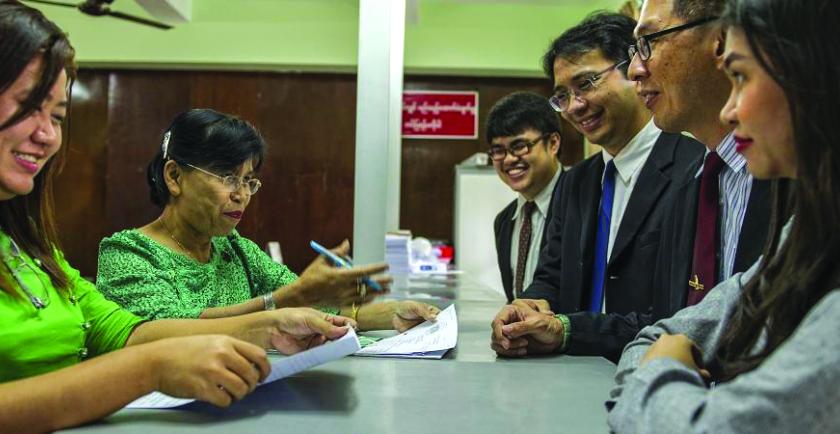
According to the Directorate of Investment and Company Administration (DICA), all companies must register online within six months of 1st August 2018 when the Myanmar Companies Act bylaw comes into effect
All companies in Myanmar must re-register online within six months of Au¬gust 1, 2018, when My¬anmar Companies Act bylaw comes into effect, according to the Directo¬rate of Investments and Company Administration (DICA). It is, according to U Aung Naing Oo, Director General of DICA, part of the e-government plan the government trying to implement. ‘‘All the registered com¬panies must re-register. It won’t be very difficult, it’s just simply complet¬ing the online forms,’’ he added. The new Myanmar Com¬panies Act emerged when Amyotha Hluttaw, the upper house, approved it on November 22nd. The bylaw includes changes to online registration, erases tax exemption for small and medium companies, and allows foreigners to invest up to 35 percent in citizen-owned companies. -
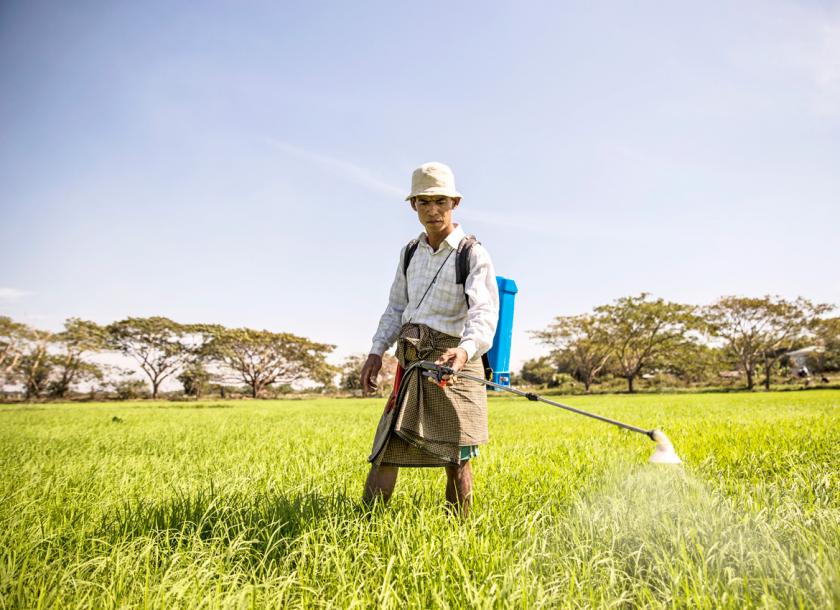
Japan’s Garbage Collection Co., Ltd expressed its interest in constructing a waste to diesel fuel factory in Bago Region
Japan’s Garbage Collection Co Ltd has expressed interest in constructing a waste-to-diesel factory in Bago Region, according to the Bago Regional Government. The diesel produced will be used as fuel for tractors and harvesters in the agriculture sector. Bago Region, which is next to Yangon Region, is heavily reliant on the agri-business. The region mainly cultivates paddy and beans. The company met with Bago Region Chief Minister U Win Thein this week to discuss the construction of the waste recycling plant. -
By working closely with the government and the legislature, UMFCCI helps to reflect the private sector’s perspectives on tax laws
MORE THAN 150 executives from different companies recently gathered at the Union of Myanmar Federation of Chamber of Commerce and Industry (UMFCCI) office to provide inputs on the Union Tax Law, which would soon be enacted. The event, entitled “CFO Conference”, led to fruitful discussions and a paper based on the participants’ suggestions would be submitted to authorities concerned, according to Ye Min Aung, vice president of UMFCCI and managing director of Myanmar Agribusiness Public Corporation, who leads the organisation’s tax working group. “We decided to work closely with the government and the legislature in order to reflect the private sector’s perspectives on tax laws. We need to raise awareness of taxation and ensure responsible businesses that pay taxes,” he said. He said the taxpayers’ base should be expanded while tax rates should not be increased. He added that private firms had decided to work closely with the Inland Revenue Department to raise their awareness on taxation. -
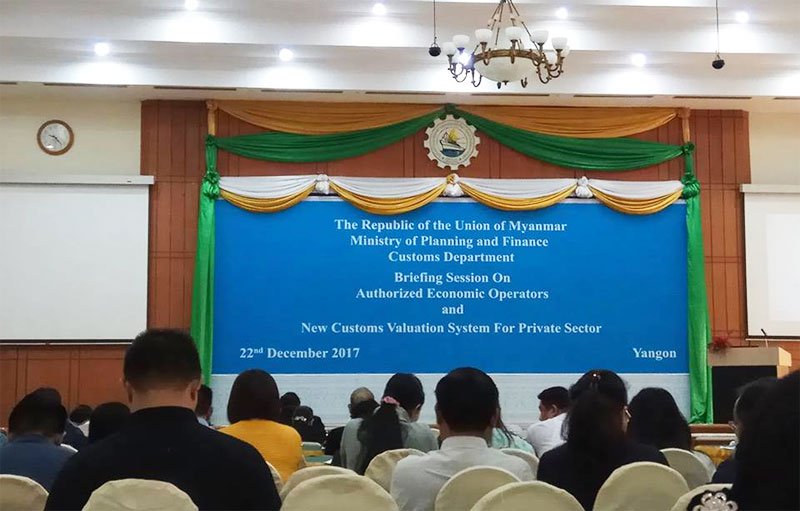
In order to enhance customs administration, the Customs Department initiated a new program on Authorized Economic Operators (AEO)
As part of Myanmar government’s efforts to enhance customs administration, the Customs Department initiated the new program on Authorized Economic Operators-AEO and conducted the public awareness for the import and export companies, agencies, freight forwarders and departments concerned at the Union of Myanmar Federation of Chambers of Commerce and Industry (UMFCCI), Yangon. This new program aims to allow trade operators with a good record of customs compliance and a solid commercial records management system, to receive a range of trade facilitation benefits, including quicker customs processing, according to the State Counsellor’s office on December 22. -
Construction material prices slumped since the beginning of this month despite more construction projects
According to con¬struction material suppliers, prices of cement, sand, and gravel used in construction have been dropping since the beginning of this month despite more construc¬tion projects. The price of a cement bag was at K6,000 last month and is now K5,500 this month. The price of gravel per unit was at K62,000 and has now fallen to K50,000 this month. ‘‘The construction mar¬ket is not in a severe situa¬tion as there are undergo¬ing construction projects. Only brick prices are up since supply has fallen short. The other construc¬tion material prices such as cement and sand have fallen,’’ Ko Than Aung from Daw Ngwe Win and Sons construction materi¬als shop, said. -
Myanmar government believes it is on the right track given the recent enactment of the new Companies Law even though recent surveys stressed a drastic decline of investor confidence in Myanmar
THOUGH recent surveys have stressed a drastic decline of investor confidence in Myanmar, the government still believes it is on the right track given the recent enactment of long-awaited new companies law. Aung Naing Oo, director general at the Directorate of Investment and Company Administration (DICA) and secretary of Myanmar Investment Commission, said the law was a game changer that would bring optimism back to the nation. He said that allowing more foreign participation in Myanmar companies would obviously draw investors’ interest in the country while also protecting the interests of local businesses. -

State Counsellor encourages greater transparency with resource sector investors
State Counsellor H.E. Daw Aung San Suu Kyi received representatives from the International Investors for the Mineral Development Association (IIMDA). Measures to improve transparency in the sector were a priority, including enhancing the availability of data and providing public access to resource agreements, the IIMDA said in a statement. International standards such as the Extractive Industries Transparency Initiative (EITI) were also considered. The State Counsellor called on IIMDA members to pay attention to transparency and accountability in the areas where they operated. Richard Taylor, IIMDA Chairman, said that responsible resource sector investment could play an important role in developing Myanmar’s economy. Investment in the sector by companies that adhered to international best practice could be a catalyst for change and would address challenges posed by traditional mining practices. There were a number of lessons learnt from international experience in promoting inclusive economic growth to mitigating the impacts of resource development. -
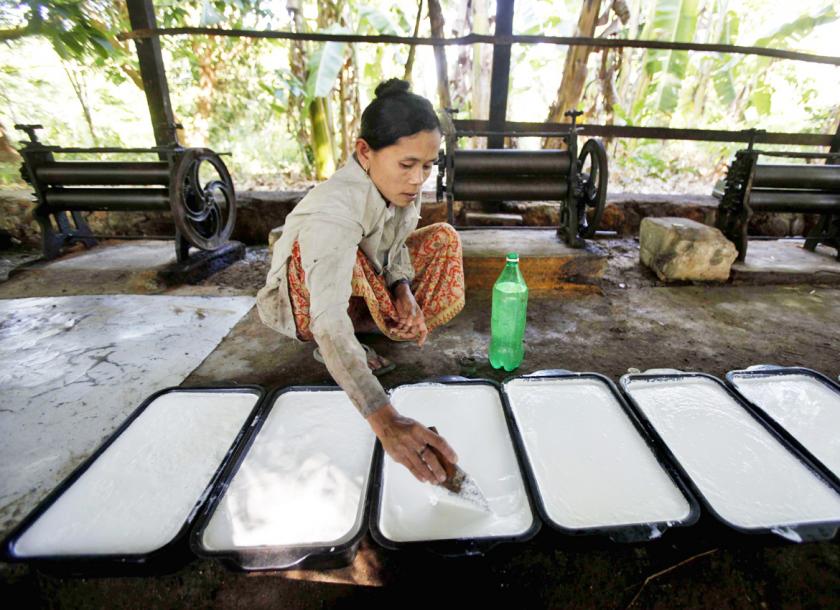
Central rubber market expected after enactment of new rubber law in late 2018
The drafting of a new Rubber Law, which aims to create a central rubber market and raise the export quality of Myanmar rubber, is close to three quarters complete and will be enacted in late 2018, U Khaing Min, secretary at the Myanmar Rubber Planters and Producers Association (MRPPA), told The Myanmar Times. Myanmar is drafting fresh legislation which will lead to the establishment of a central rubber market once approved. It will control and release the market price for locally produced rubber, ensuring price stability and raising demand from foreign buyers. The central rubber market will also become the main platform on which local and foreign businesses can bid for rubber in Myanmar. Notably, it will facilitate the trade of local rubber and ensure producers are paid a fair price. This is expected to raise the quality of locally produced rubber and enrich the entire value chain over the longer term. -
The Central Bank of Myanmar (CBM) now allows foreign banks to provide export financing and related banking services for domestic exporters
Central Bank of Myanmar (CBM) is now allowing foreign banks to provide export financing and related banking services for domestic exporters, according to its directives released on December 8. The foreign banks which want to provide services must obtain a permit from CBM. ‘‘Not having steady money flow is one of the reasons Myanmar's economy is slow. The change, in my opinion, is a positive step. At the moment, the services are allowed only for exporters, but in the future, it should also be allowed for importers,’’ U Myo Thet, Vice President of Union of Myanmar Federation and Chambers of Commerce and Industry, said. -
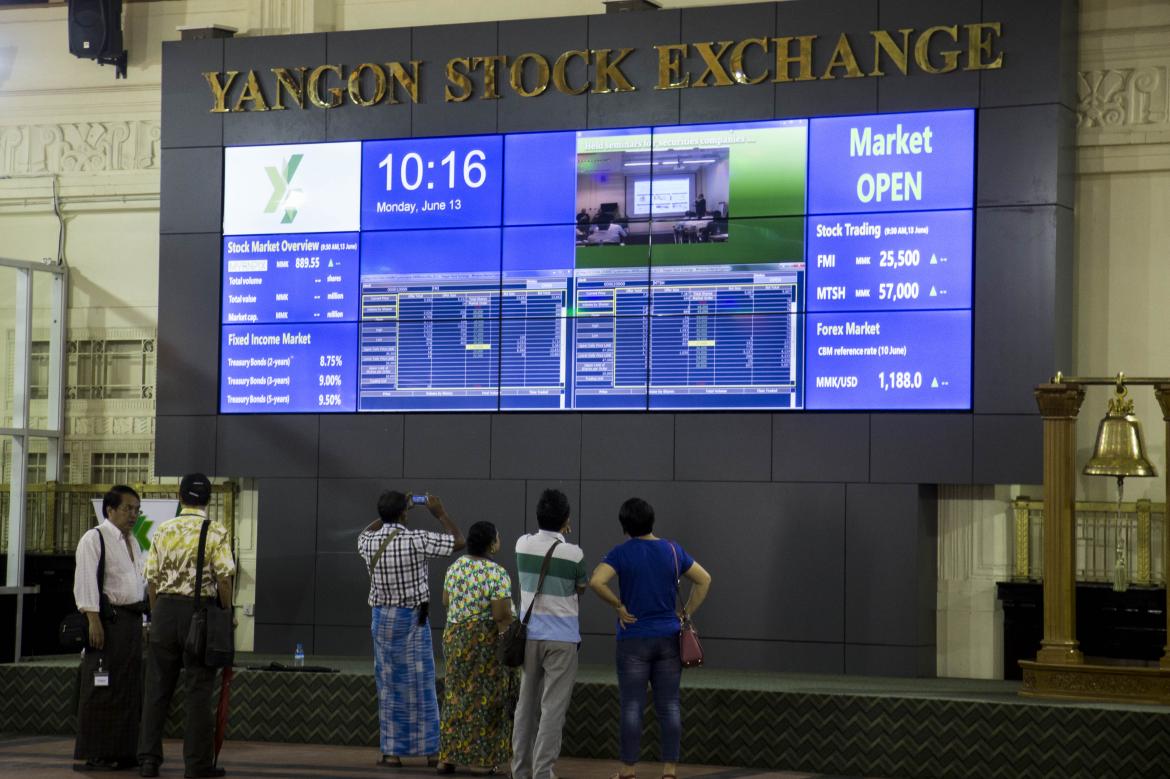
Directorate of Investment and Company Administrati0n (DICA) defended delays in implementing the Companies Law
YANGON — The Directorate of Investment and Company Administration has rejected criticism of an eight-month preparation period to implement major corporate law reform at a time of rising concern about the government’s economic management. The long-awaited Myanmar Companies Law was approved by President U Htin Kyaw on December 6 but DICA said at a briefing a week later that it could not be implemented until August 1, 2018. “This is not a delay,” DICA director general U Aung Naing Oo told Frontier on the sidelines of the briefing in Yangon on December 13. Much had to be done to prepare for the introduction of the law and ensure its smooth implementation, Aung Naing Oo said.
Business News
Copyright © 2014 Business Information Center All Rights Reserved.







